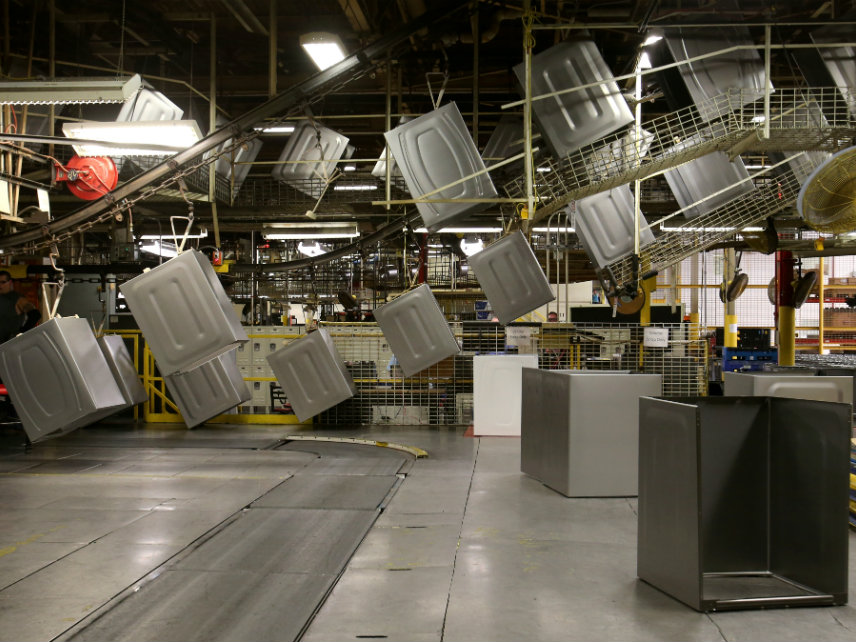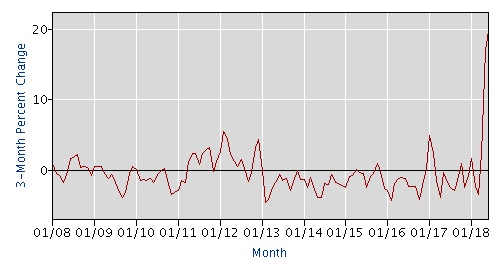Whirlpool Took Tariffs for a Spin, Ended Up With Tumbling Sales
Tariffs let the government pick winners and losers-but sometimes even the winners get hung out to dry.

Before the White House was slapping tariffs on Chinese imports, before its tariffs on imported steel and aluminum, the opening salvo in what would become President Donald Trump's trade war was fired without hardly any notice. In January, the administration imposed tariffs on imported washing machines, with the duty ranging from 20 percent to 50 percent along a sliding scale.
That sounded like great news to the Whirlpool Corp., an American appliance manufacturer. "This is, without any doubt, a positive catalyst for Whirlpool," CEO Marc Bitzer said on an investor conference call, according to The Wall Street Journal.
Almost every government intrusion into the economy will create winners and losers, but tariffs do so in espescially direct ways. And it was no accident that Whirlpool was a "winner" of the Trump administration's first foray into trade protectionism. The company had lobbied hard for the trade barriers, telling the United States International Trade Commission that foreign companies like Samsung and LG were undercutting it on price. The tariffs would "create a level playing field for American workers and manufacturers," Whirlpool officials told the commission. They would allow the domestic manufacturer to hire 1,300 more workers at its Ohio plant, the company said.
Now, the Journal reports, things look quite a bit different. Whirlpool's share price is down 15 percent over the past six months. (Fellow washing-machine makers Samsung and LG have seen their stock prices fall as well.) Even with a boost from the new corporate tax rules, Whirlpool's net income was down $64 million in the first quarter of 2018 when compared with the same period of the previous year.
Why? Because tariffs on steel and aluminum have increased the cost of Whirlpool's raw materials, essentially wiping out the advantage it gained by having its foreign competitors penalized.
For consumers, it means the price of a new washing machine—whether made in Ohio, South Korea, or China—has jumped by about 20 percent in just a few months. That's pretty much exactly in line with what analysts predicted in January when the tariff was announced.

"We have repeatedly stated that this tariff is a tax on every washing machine buyer in the U.S.," a Samsung spokesman told the Journal. "Since the tariff was implemented, U.S. consumers have paid more for their washing machines across all brands."
While the tariffs can be credited with pushing Sumsung to open a small manufacturing facility in South Carolina (LG is reportedly considering doing the same), the costs imposed on consumers seem to far outweigh the potential for new jobs. That's something that economists have generally agreed on ever since the Trump administration started racheting up barriers to trade: Tariffs may create some jobs, but they'll cause more to be lost.
Similar stories are playing out in other sectors of the economy where the Trump administraton has deployed protectionist policies. The 25 percent tariff on imported steel, for example, is raising prices and forcing layoffs, but it is not resurrecting steel towns in the Rust Belt.
When it comes to tariffs, the losers lose and often the winners lose too. And consumers lose most of all.


Show Comments (17)